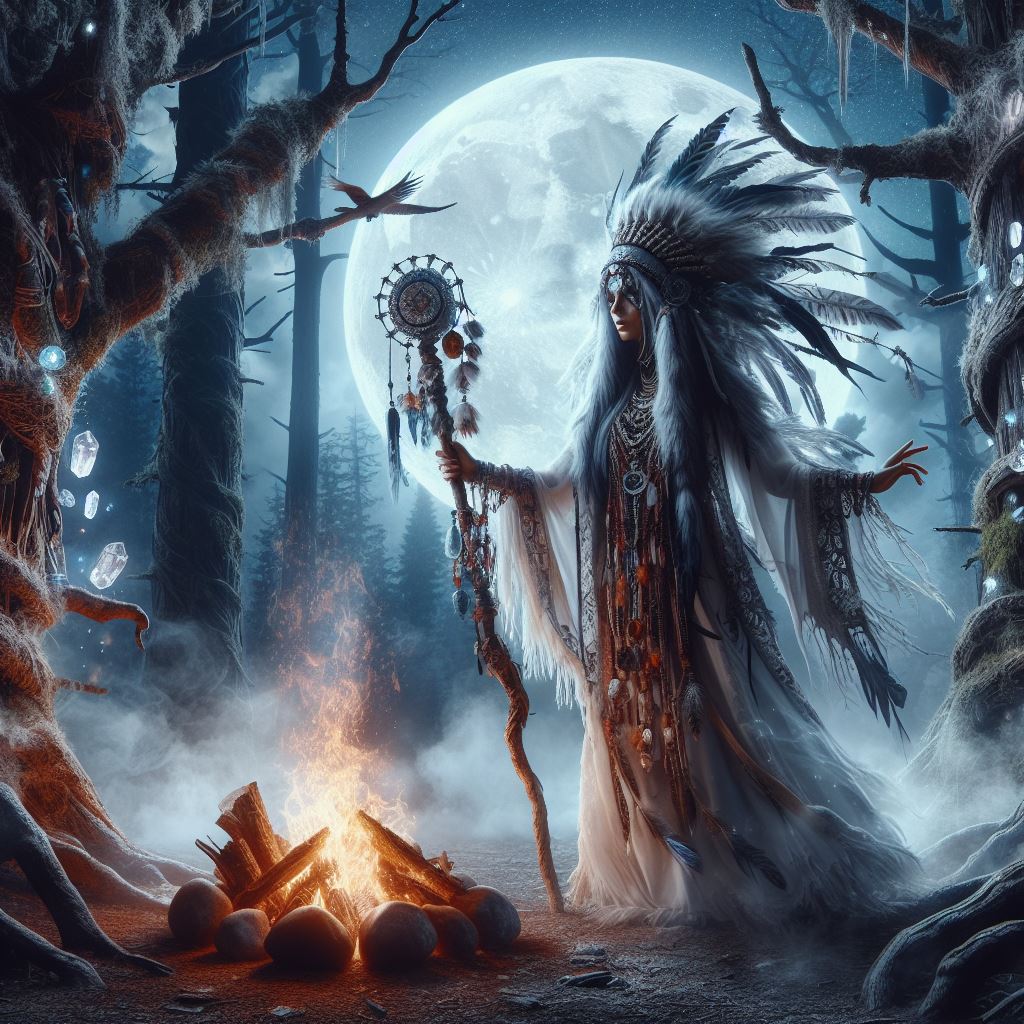Unveiling the Mystery of Shamans
Introduction: Shamans are revered figures in various cultures around the world, serving as spiritual guides, healers, and mediators between the human and spirit realms. In this article, we embark on a journey to unravel the mystery of shamans, delving into their ancient traditions, practices, and profound wisdom that continue to inspire and intrigue thus unveiling the mystery of shamans. Being a shaman is to walk a path of spiritual calling and healing, journeying between the realms of the seen and unseen to bring balance, harmony, and healing to individuals and communities. Shamans serve as mediators between the human world and the spirit world, tapping into ancient wisdom, ancestral knowledge, and divine guidance to facilitate healing and transformation. They possess a deep understanding of the interconnectedness of all beings and the subtle energies that permeate the universe. Through rituals, ceremonies, and sacred practices, shamans work to address physical, emotional, and spiritual imbalances, restoring wholeness and harmony to those they serve. They may use various tools and techniques such as drumming, chanting, trance work, and plant medicines to access altered states of consciousness and connect with spirit allies and guides. Being a shaman is not just a role but a way of life, requiring dedication, humility, and a commitment to service. It is a profound journey of self-discovery, self-mastery, and spiritual evolution, where the shaman learns to navigate the realms of spirit with wisdom, integrity, and compassion, in service to the highest good of all.

-
Origins and Roles of Shamans:
- Shamans trace their origins back to ancient indigenous cultures, where they played pivotal roles as healers, visionaries, and guardians of tribal knowledge.
- Traditionally, shamans are believed to possess a special connection with the spirit world, allowing them to communicate with deities, ancestors, and other spiritual entities on behalf of their communities.
- Shamans often serve as mediators between the physical and spiritual realms, performing rituals, ceremonies, and healing practices to maintain balance and harmony in the natural world.
-
Shamanic Practices and Rituals:
- Shamanic practices vary widely across different cultures and traditions, but they often share common elements such as drumming, chanting, dancing, and trance induction.
- Journeying, or entering altered states of consciousness, is a central practice in shamanism, allowing shamans to travel to other realms, retrieve spiritual insights, and perform healing work.
- Rituals such as soul retrieval, energy clearing, and plant medicine ceremonies are commonly used by shamans to address physical, emotional, and spiritual imbalances in individuals and communities.
-
Wisdom and Spiritual Guidance:
- Shamans are revered for their deep wisdom, intuition, and connection to the natural world.
- They offer spiritual guidance, counsel, and teachings based on their understanding of the interconnectedness of all beings and the cycles of life and death.
- Through their visionary experiences and communion with the spirit world, shamans provide insights into the mysteries of existence, the purpose of life, and the interconnected web of existence.
-
Modern Applications and Challenges:
- In the modern world, shamanic practices are experiencing a revival as people seek alternative approaches to healing, spirituality, and personal growth.
- However, the commercialization and appropriation of shamanic traditions pose challenges to preserving their authenticity and integrity.
- Ethical considerations, cultural sensitivity, and respect for indigenous wisdom are essential when engaging with shamanic practices and teachings in contemporary contexts.
Conclusion: Shamans stand as guardians of ancient wisdom, bridging the gap between the seen and unseen worlds with reverence, humility, and profound insight. By honoring their traditions, practices, and teachings, we can cultivate a deeper understanding of ourselves, our connection to the natural world, and the spiritual mysteries that permeate our existence.